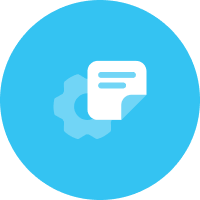What is Retention Marketing?
Retention marketing refers to marketing strategies used to generate repeat business from customers and increase customer loyalty.
Bain & Company found that it’s anywhere from 5 to 25 times more expensive to acquire a new customer than to retain an existing one, and increasing customer retention rates by 5% can increase profits by 25% to 95%.
That means it’s crucial to focus on ensuring that all of your existing customers have positive experiences with your brand, and to identify ways to reward loyal customers and increase satisfaction in those who are at risk of churning.
Retention marketing can help you increase customer lifetime value (LTV), increase your average order volume, and give you more leeway for investing in new sales channels and markets.
Let’s look at some ways to implement retention marketing effectively.
Build a Customer Loyalty Program
To keep your customers, you should reward them for remaining loyal to your brand over time. Create a customer loyalty program that rewards them with discounts or gifts once they reach a certain purchase volume, purchase number, or level as defined by your brand.
For example, the Starbucks Rewards program awards customers with “stars,” based on a variety of factors, such as buying a specific item within a set timeframe as well as general purchase history. Customers can participate in “double star days” to get additional incentives for making purchases, and are able to redeem their stars for free items. The program has proved so popular that it generates almost 50% of the brand’s revenue.
Remind Them to Stock Up
If your products are the sort that customers need to replenish—say, dog food, toothpaste, makeup, or even kids’ clothing—your brand should set up automated reminder emails encouraging your customers to restock before it’s too late.
You might consider offering a promotional discount when you send out your reminder to encourage them to stay loyal to your brand. You can also automatically update their shopping carts with the exact items they’d previously ordered to streamline the e-commerce experience.
Provide Great Customer Support
A key to retention marketing is keeping your customers happy—you want to ensure that they always feel heard. Make sure that if they ever have an issue, it’s addressed quickly and remedied appropriately. They should have multiple avenues to get in touch with your brand if they have concerns. This includes email, SMS, chat, and phone, as well as a self-service knowledge base.
Additionally, it’s important to connect with the customers who may not have support needs , but have shown through their actions that they’re not engaging with your brand.
For example, if a customer only watched one of your three product training videos, they’re not likely to get the best use out of your software trial and are not likely to commit to a premium subscription. By sending personalized follow-ups to help reengage these customers, you’ll increase their chances of converting to paid subscribers. Using a best-in-class marketing automation platform, like Iterable, can help you identify predictive audiences and understand which marketing campaigns will re-engage these customers.
Making sure that customers feel heard and supported will help them remain engaged with your brand, rather than seeking out competitors or dropping off altogether.
Offer Related Recommendations
You can use your customers’ past purchase data to dynamically generate curated recommendations that will fit with their interests and preferences. If your brand is an apparel company, for example, your promotional content can showcase new fashions in your customers’ preferred styles, colors, and sizes.
If your brand is an online bookstore, and your customer purchased and left a positive rating for a recent bestseller, you’ll be able to share a curated list of book recommendations generated based on other books that customers who enjoyed that author have also liked. By showing your customers curated content that’s tailored towards their unique interests, you can help re-engage them and encourage them to make additional purchases.
Customer retention costs far less than new customer acquisition, so your goal should be to maximize the LTV of your existing customer base.
Use Content Marketing to Continually Engage Your Customers
To keep your customers engaged with your brand even when they’re not actively looking to make a purchase, it’s important to develop a content marketing strategy designed to educate, inform, and entertain them.
For example, a makeup brand might offer a blog and daily newsletter filled with makeup tips and tutorial videos to help customers learn new looks that they can create with your products. By delivering additional value even when customers aren’t engaged in the purchase cycle, you can help foster trust in your brand that will keep past customers coming back. They will likely even share your content with their own networks, helping you with new customer acquisition without any associated marketing costs.
Use Real-Time, Cross-Channel Marketing
By using a cross-channel platform like Iterable, you can integrate all of your customer data to dynamically generate real-time, personalized messaging that’s triggered by your customers’ interactions with your brand.
That means you can continually re-engage your customers with retention marketing that meets their immediate needs. If they click on a product on your website, you can automatically trigger a promotional offer enticing them to buy that item or similar products—using all the marketing channels at your disposal, including email, SMS, push notifications, and even direct mail. Your marketing workflows are dynamically generated in direct response to your customers’ actions, enabling you to send them exactly the right content at the right time through the right channel to encourage maximum engagement.
You can even use predictive audiences to understand which audience segments, based on past actions, are most likely to make another purchase or to churn, so that you can set up customized workflows encouraging re-engagement based on their likely paths.
Rather than focusing heavily on customer acquisition, retention marketing is the most efficient and cost-effective way to increase your revenue. Incorporate a cross-channel marketing platform to develop integrated retention marketing strategies that will help you to increase customer satisfaction and customer lifetime value.




























